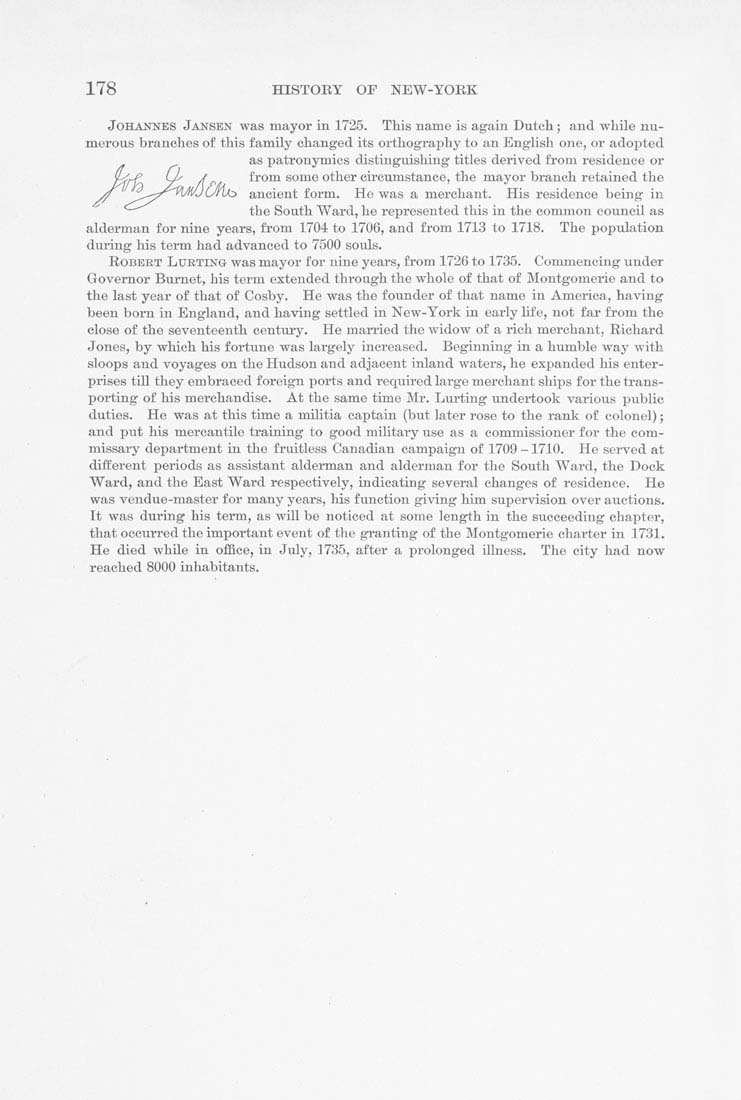178 HISTORY OE NEW-YORK
Johannes Jansen was mayor in 1725. This name is again Dutch; and while nu¬
merous branches of this family changed its orthography to an English one, or adopted
as patronymics distinguishing titles derived from residence or
-^ LJy A from some other circumstance, the mayor branch retained the
j^^,.^^^;/'^KM/j Un/^ ancient form. He was a merchant. His residence being in
the South Ward, he represented this in the common council as
alderman for nine years, from 1704 to 1706, and from 1713 to 1718. The population
during his term had advanced to 7500 souls.
Robert Lurting was mayor for nine years, from 1726 to 1735. Connnencing under
Governor Burnet, his term extended through the whole of that of Montgomerie and to
the last year of that of Cosby. He was the founder of that name in America, having
been born in England, and having settled in New-York in early life, not far from the
close of the seventeenth century. He married the widow of a rich merchant, Richard
Jones, by which his fortune was largely increased. Beginning in a humble way with
sloops and voyages on the Hudson and adjacent inland waters, he expanded his enter¬
prises till they embraced foreign ports and required large merchant ships for the trans¬
porting of his merchandise. At the same time Mr. Lurting undertook various public
duties. He was at this time a militia captain (but later rose to the rank of colonel);
and put his mercantile training to good military use as a commissioner for the com¬
missary department in the fruitless Canadian campaign of 1709 -1710. He served at
different periods as assistant alderman and alderman for the South Ward, the Dock
Ward, and the East Ward respectively, indicating several changes of residence. He
was vendue-master for many years, his function giving him supervision over auctions.
It was during his term, as will be noticed at some length in the succeeding chapter,
that occurred the important event of the granting of the Montgomerie charter in 1731.
He died while in office, in July, 1735, after a prolonged illness. The city had now
reached 8000 inhabitants.
|








